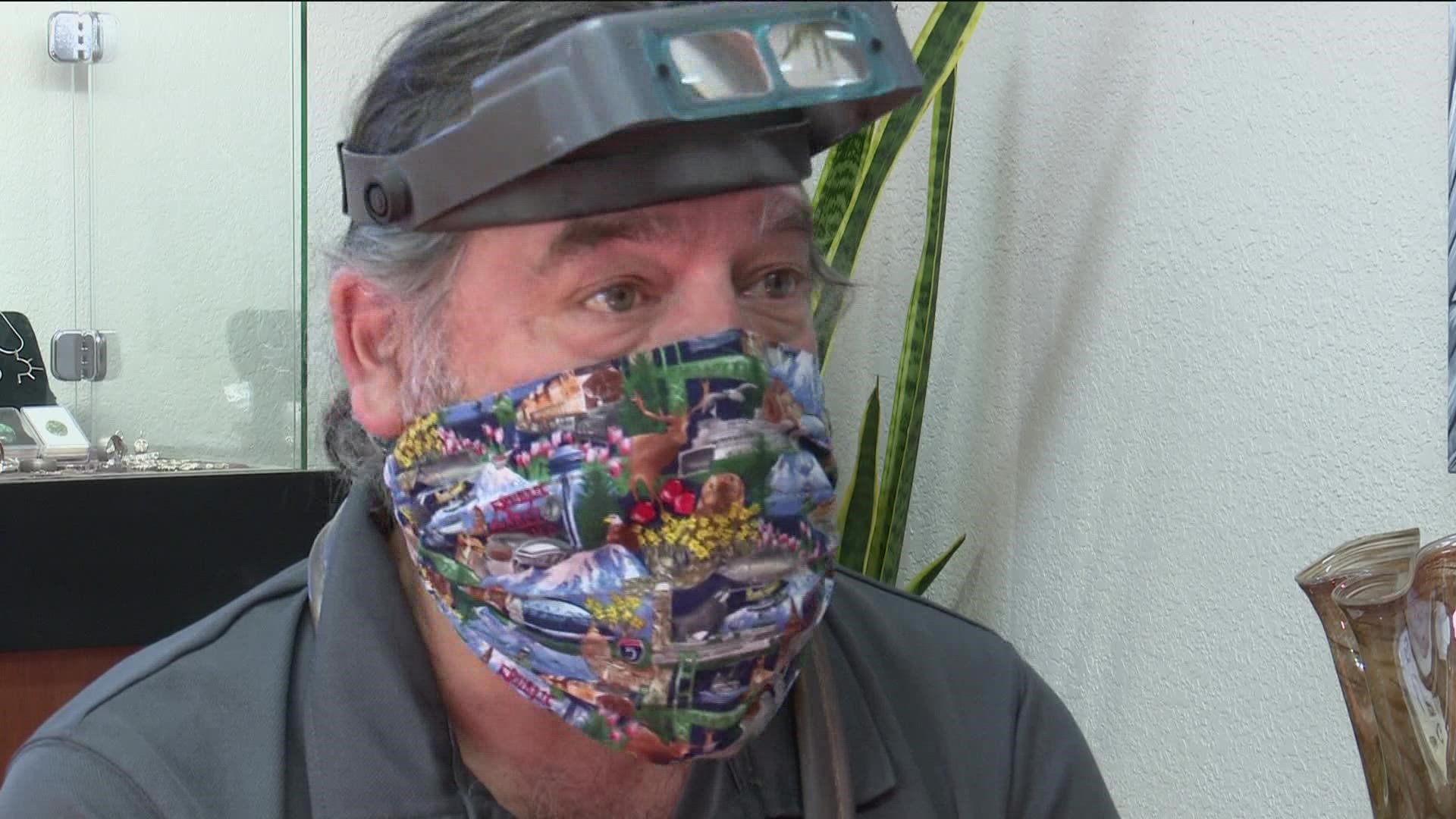BOISE, Idaho — The St. Luke's COVID Recovery Clinic is receiving more referrals than they can handle. Some people experiencing "long COVID" are waiting two-to-three months just to get an appointment, according to Service Line Medical Director, Dr. Laura McGeorge.
St. Luke's is working to increase capacity, however, the industry in general is facing a worker shortage. It's a problem that's compounded by the continuous population growth throughout Idaho, especially in the Treasure Valley.
"A lot of people moving into the community and demand everywhere is growing," McGeorge said.
The waitlist is impacting Idahoans facing a range of symptoms that seemingly don't go away. Long covid symptoms include fatigue, brain fog, short breath, chest pain, cough, and heart palpitations, according to St. Luke's.
Mike Rogers works as a custom jeweler and artist in Boise. He caught COVID two months ago.
"It hit me like a ton of bricks," Rogers said. "I did not expect it to be quite this intense."
Rogers said his original symptoms included convulsions, high fever and the inability to think rationally. While his symptoms have since changed, they are far from gone.
"If you just took the brain out and put it on a table and warped in with saran wrap, and tightened it up a little bit and put some electrical current in it, that's the best description I have found. It's just uncomfortable," Rogers said. "I'm thinking well okay, tomorrow. Tomorrow is better, and it really hasn't been so far. I'm still sleeping 11-12 hours a day. I got a weird buzz in my brain."
Rogers can think clearly, but the fatigue leaves him exhausted. He received a referral from his doctor to get treatment at the St. Luke's COVID Recovery Clinic only to be stuck in the back of a long line.
"[The receptionist] left me with the impression I wasn't gonna get in no matter what, and if I did it wasn't gonna be until November," Rogers said.
It's important for people experiencing long COVID to be patient, Dr. McGeorge said. Pushing through fatigue - and other symptoms - can do more harm than good.
"It's often two steps forward, and three steps back," Dr. McGeorge said. "It's better to just go forward one step at a time."
Without availability at the COVID Recovery Clinic, Rogers’ primary care doctor directed his next step toward a neurologist. St. Luke's will do the same with some of their patients on a case-by-case basis, according to Dr. McGeorge.
Dr. McGeorge encourages anyone with long COVID symptoms to talk to their primary care provider about what is best for their own personal situation.
At KTVB, we’re focusing our news coverage on the facts and not the fear around the virus. To see our full coverage, visit our coronavirus section, here: www.ktvb.com/coronavirus.
Facts not fear: More on coronavirus
See our latest updates in our YouTube playlist:

